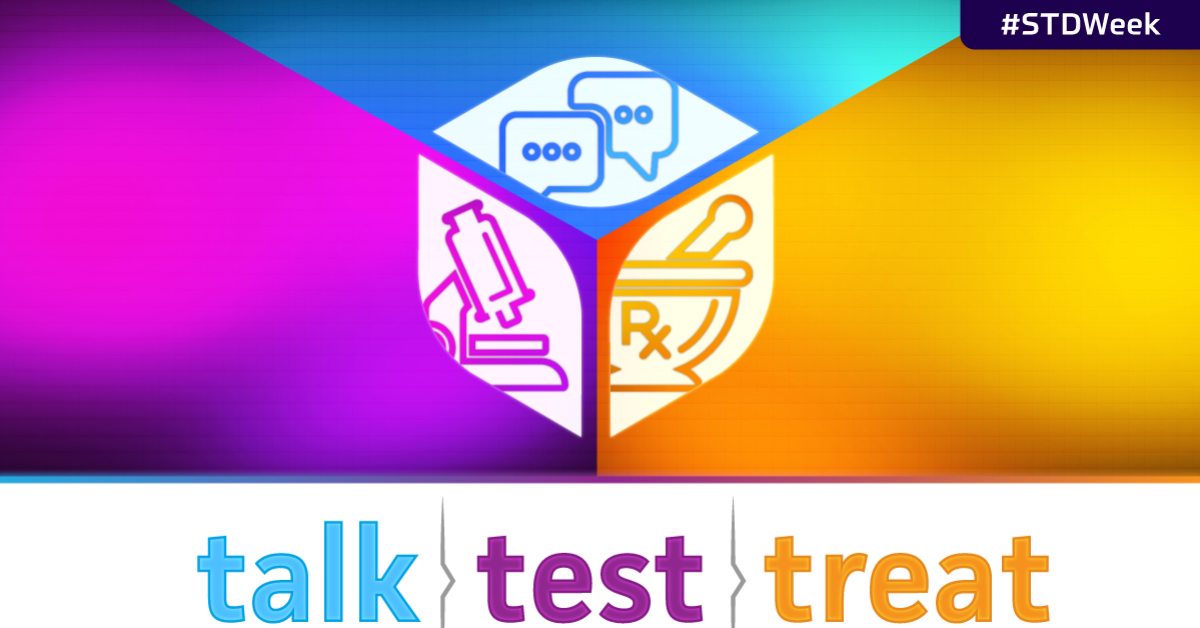
Last week, we celebrated STD Awareness week, the second full week in April each year. The week is all about breaking down the stigmas, fears, and discrimination that surround STDs/STIs and encouraging people to talk, test, and get treated.
Did you know that STDs are more common than you’d think? According to the CDC, 1 in 5 Americans has an STD on any given day in 2018. Did you also know that all STDs are preventable and treatable—yes, even HIV—and that most are actually curable?
Sexual health is a big part of life, but due to the taboos that surround it, it’s often a topic that gets swept under the rug. By caring about your sexual health, you can help ensure the health of those around you. Start by having conversations with your partners about STDs. Remaining quiet only strengthens the taboo and allows the possibility for STDs to continue to spread!
Next, get tested. Did you know that left untreated, some STDs can lead to serious health problems? If left untreated, syphilis, a common STD among men who have sex with men (MSM), can increase your chances of contracting HIV.
Getting tested is simple, and should be done regularly (at least once per year). Since many STDs don’t show symptoms, getting tested is a sure way to know that you don’t have one. The CDC recommends testing if you have had vaginal, anal, or oral sex without a condom or if you or your partners have ever had an STD.
Unless you are showing symptoms, many annual medical exams do not automatically test for sexually transmitted diseases, and because many don’t present themselves, STDs might go unnoticed. GetTested, a service provided by the CDC, offers a map of locations near you that test for HIV, STDs, and hepatitis at low to no cost.
The growing use of telehealth and even home testing makes knowing your status even easier, as you can have access to the wealth of medical knowledge without having to leave your home.
If you test positive for an STD, your healthcare provider will work with you to find the best treatment possible. Some STDs can be cured, and all are treatable! To ensure that your treatment is most effective, make sure to follow prescription instructions properly and refrain from having sex until you (and your sexual partners) complete the treatment plan.
Because reinfection can be possible with most STDs, it’s important to get follow-up testing three months after your positive results if symptoms recur or if you participate in any risky sexual behavior before your treatment or that of your sexual partner has been completed and symptoms have gone away..
STD cases in the United States have continued to increase since 2014, but you can be part of the solution. Talk, test, and treat sexually transmitted diseases, and encourage those around you to do so as well. Check with your healthcare provider or visit Project MORE’s resources page to learn where you can get tested.

